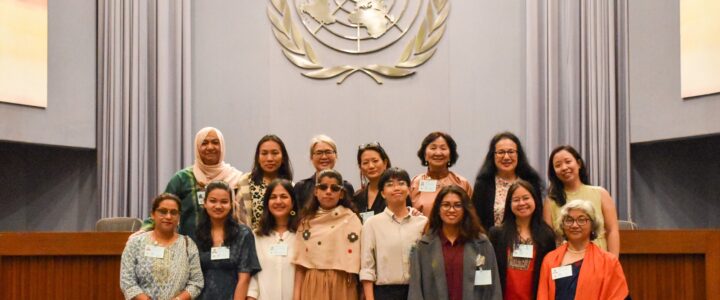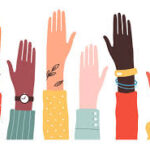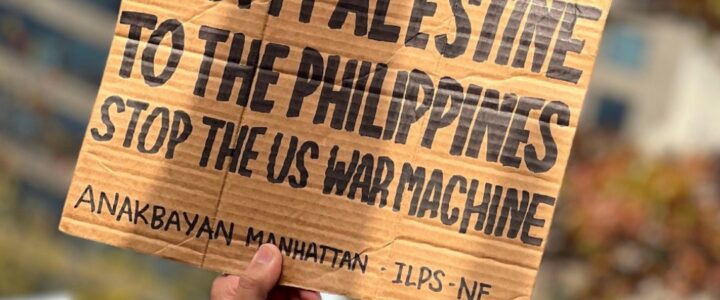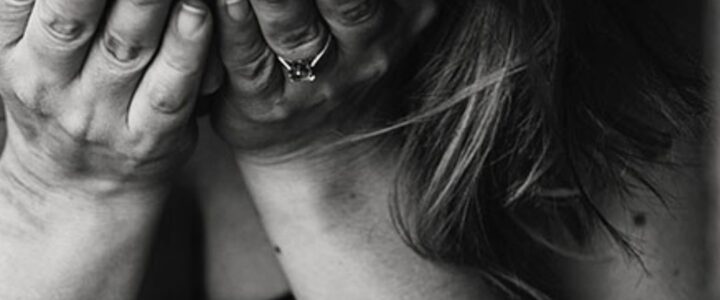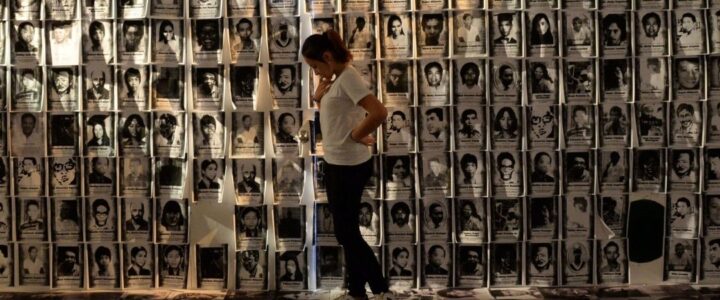Statement to be delivered by Cielito Perez, Center for Women’s Resources, Philippines
As we sit here discussing the prospects of the Summit of the Future, women in our communities are grappling with depressed wages, insecurity of jobs and livelihoods, rising food and fuel prices, reduced public services on health, education, social protection, and social welfare. Democratic spaces continue to shrink with increased militarism, fundamentalism, and authoritarian patriarchal regimes.
While we appreciate the emphasis on human rights and gender equality in the Pact of the Future, it is more important to move beyond mere rhetoric. We are presented with real problems that need real solutions and actions. Member States must demonstrate resolute commitment to dismantling systemic barriers and injustices by a system that takes away wealth and resources from developing countries to developed countries, and thus, exacerbates inequalities within our countries.
Despite affirmations of commitment to the 2030 Agenda, glaring gaps in financing remain unaddressed. In the Asia-Pacific region alone, USD 1.5 trillion is needed annually, to achieve the SDGs. Yet, half of the region’s developing economies rely on external debt to meet our needs, burdening us with crippling debt repayments. As a result, women bear the brunt of austerity measures imposed on us. Meanwhile, ODAs have been declining in quantity and quality and donor countries are failing to uphold their historical commitment to appropriate 0.7% of their Gross National Income towards development assistance.
We are alarmed by increasing reliance on the private sector to fund the SDGs. The Public Private Partnership approach at different levels, gave more roles to the corporate sector in development policies strengthening corporate capture of our economies. Privatization of essential services and infrastructures widens disparities, depriving and displacing marginalized people.
The Summit also talks about international peace and security, but this will remain elusive as militarism is used to pursue economic and hegemonic interests. There is no peace and inclusive development when military expenditure continues to divert resources away from sustainable development spending. Peace cannot exist when the military-industrial complex profits from wars and conflicts that claim the lives and future of women and children.
We recognize the need to strengthen digital cooperation and harness the potential of science, technology and innovation, and with this, we want a Global Digital Compact that will end the concentration of power in a handful of big digital and tech companies and ensure that technologies will be a tool of development for the most marginalized, and not used to maintain the status quo or reconcentrate much bigger resources and profits in the hands of a few.
In transforming global governance, we are concerned that we are falling short of realizing the vision of a multilateral system that is more effective, more trusted, more inclusive, and better equipped for the challenges, opportunities, and capacities of the present and the future. It is essential to overhaul the global debt architecture, and prioritize climate finance, and human rights. The Summit of the Future must advocate to democratize global economic and financial governance, referencing ongoing processes such as the UN Tax Convention to tackle illicit financial flows and promote fiscal transparency.
While the Summit of the Future presents a crucial opportunity to chart a course toward a more just and equitable world, this can be done if, and only if, we acknowledge that the current system has failed and that a new framework of development is needed. We urge our governments to chart a course towards development justice – an alternative model of development that puts people and planet over profit, centering on and respecting human rights and people’s right to development – a future of global equity, of ecological sustainability, of social justice, and genuine peace.
Thank you very much.

